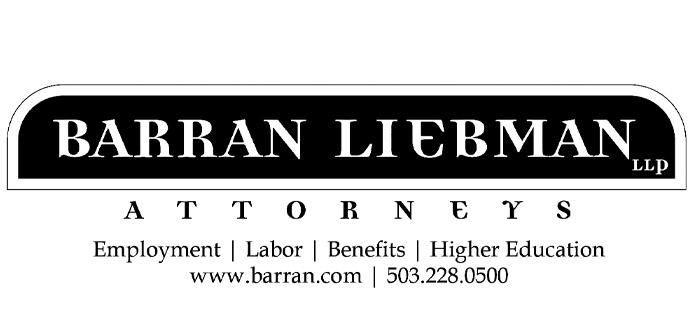Key Considerations for Managing Employee Speech in the Workplace during the Post-Election Season
Employee speech and any attempt to regulate it is always a pertinent issue, but with the upcoming election it may be more relevant than ever as employers may find themselves managing political debates and discussions in the workplace. This means that it is a perfect time for a refresher on what speech is protected and how to best address and manage employee speech before problems arise.
Speech rights are often misunderstood, and a fairly common situation may sound familiar to you: an employee makes a clearly inappropriate comment in the workplace, but when you discipline that employee they complain and proclaim “it’s free speech!” Free speech is a quintessential constitutional right, and many employees presume that such protections extend throughout their lives, including in the workplace. In actuality, “free speech,” insofar as it refers to First Amendment rights to express oneself freely, only protects against discrimination from the government, and thus generally only applies in the workplace to public employees. Even for public employees, free speech rights are not absolute, limited by the “Pickering-Connick” test, which includes a balancing test that takes into account the interest of the employer in managing the workplace. Private employers are not subject to the Constitution in this way because they are not acting as the government. Hence, private employers can regulate employee speech unless they are otherwise prevented from doing so due to the prohibitions of some other law that intersects with speech.
As a primary example, discrimination/harassment laws and whistleblower rights can implicate free speech in both public and private settings. For example, if an employee is using speech that is discriminatory or harassing towards another employee, the employer must step in and stop the discriminatory speech. This is an instance where employee free speech and discrimination/harassment laws are in conflict. However, employees cannot use free speech as a shield for discriminatory or harassing behavior. In these cases, employers have an obligation to act in order to protect other employees from harm, and in order to maintain a safe and healthy work environment.
On the other hand, whistleblower laws present a scenario in which employers must allow employee speech and tread carefully in taking any action. When an employee raises a concern about an issue that they reasonably believe is a violation of the law, this can be protected speech and employers should be careful not to take adverse action in response to that speech (even if they know that what the employee complained about is not in fact illegal).
Another key consideration for employee speech is the National Labor Relations Act (NLRA). Under Section 7 of the NLRA, employees are protected when they engage in concerted activity for mutual aid and protection. This can include any situation where two or more employees discuss wages, hours, and working conditions, regardless of whether the employees are unionized. While protected activity seems like it would be easy to identify, it can occur in subtle ways, most commonly on social media. For example, if an employee posts a complaint about work on social media and another employee comments something in support, this is considered protected Section 7 activity and employers cannot punish or restrain this behavior. Implementing a social media policy in your employee handbook is a great way to ensure that employees understand their rights – and managers understand the protections – that come along with speech in a social media setting.
While there are many identities that are protected under the law, in private settings political identity is not a protected class per se. Despite this, it is generally best to remain neutral when assessing any response to employee speech, especially since many political identities intersect with other protected classes. For example, if private sector employees are discussing their opinions on reproductive rights, their opinions on reproductive rights are not strictly protected. However, other related identities such as gender, sex, and pregnancy are protected classes. Hence, when it comes to employee speech, employers should generally regulate from a neutral standpoint.
Given the array of protections that employees have when it comes to speech, it is important for employers to develop fair and consistent policies when it comes to employee speech. Policies that are applied in an inconsistent manner can result in employee claims of inequitable or discriminatory treatment. Content-neutral policies, on the other hand, apply to speech without regard to its substance. This is particularly important in an increasingly divisive political atmosphere, where employees may have very strong political views and feel inclined to express them at work. Having a content-neutral policy to regulate political conversations may be key to keeping the peace in this post-election season.
When it comes to free speech, there are a myriad of legal issues at play, including constitutional rights, statutory rights, and the sometimes-countervailing rights of other employees. Before taking action against an employee for their speech, employers will want to analyze whether the speech is protected. When considering and managing employee speech, neutrality and fairness in implementing and enforcing clear policies will help best protect your organizations and hopefully keep them running smoothly.
Wilson Jarrell is a partner at Barran Liebman LLP. For questions about how to handle employee speech issues or for other employment law matters, contact him at 503-276-2181 or at wjarrell@barran.com.
Hannah LaChance is an attorney at Barran Liebman LLP. For questions about how to handle employee speech issues or for other employment law matters, contact her at 503-276-2112 or at hlachance@barran.com.





